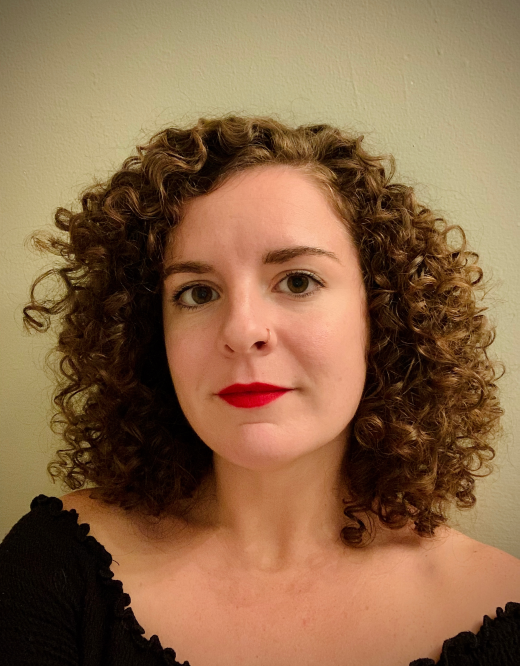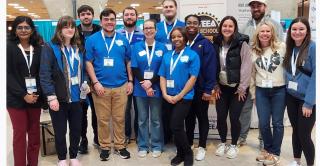

Latinx Literature
Caribbean Literature & Visual Culture
Literary Theory
Memory Studies
“Art, Relic, or Refuse?: The Abject Exhibition of the Cuban Raft and Its Literary Afterlife in Fiction by Achy Obejas.” Latino Studies, vol. 22, no. 4, 2024, pp. 659–680.
“Cutting Cane: A Cultural Studies-Informed Approach to Trauma and Cultural Competence.” (Co-authored with Carlos A. Larrauri). HPHR Journal (formerly the Harvard Public Health Review), PRISM: Mental Health Through the Lens of Difference, September 2023.
“Mimicking Seas and Malefic Mirrors in Suzanne Césaire: An Ecopoetic Theory of Caribbean Subjectivity,” Small Axe: A Caribbean Journal of Criticism, issue 69, November 2022.
“Echoes off the Straits of Florida: The Rafts of the Cuban Balseros.” Featured in the Smithsonian Learning Lab’s Cuban Balseros: Using Art and Artifact to Explore an American Immigration Story, Smithsonian Center for Learning and Digital Access, April 6, 2020.
ENG 219 / LTN 219 Introduction to Latinx Literature
ENG 388 Topics in World Literature: Contemporary Caribbean Literature
ENG 388 Topics in World Literature: Gender & Sexuality in Caribbean & Latinx Literature
Honors Writing & Research I
******************************************************************************************************
SPRING 2025 COURSES (below)
ENG 219 / LTN 219: Intro to Latinx Literature
Section 01: TR 9:25 AM - 10:40 AM
Section 02: TR 10:50 AM - 12:05 AM
Description | Dive into the rich body of literature that has emerged from encounters between Latin America and the United States. Through interactive discussions and “close reading,” you’ll learn to find deeper meaning in fiction, poetry, and essays by some of the most dynamic and influential Latinx writers. Together, we’ll discover what connects their works while exploring how race, ethnicity, gender, sexuality, and class complicate the idea of a singular Latinx experience.
Learning Outcomes | By the end of this course, you’ll be able to:
- Describe key concepts and debates in Latinx literary studies in terms of author, genre, style, and historical context.
- Interrogate categories of identity, community, gender, race, ethnicity, and class.
- Analyze, interpret, and compare texts using the methodologies such as close reading and comparative analysis.
- Read beyond a text's surface and have lively discussions about literature with peers.
Satisfies the EJI and SA1/LIT-Arts & Humanities requirements.
See required textbooks at the CCSU bookstore (course materials will be visible starting 30 days before the term start date).
- Dreaming in Cuban, by Cristina García (ISBN: 978-0345381439)
- We the Animals, by Justin Torres (ISBN: 978-0547844190)
ENG 488-03: Cuban & Haitian Sea Migration Literature
MW 12:15 PM - 1:30 PM
Description | From the mid-20th century to today, people from the Caribbean countries of Cuba and Haiti have taken to the sea on small, sometimes handmade boats and rafts in hopes of escaping turbulent political and economic conditions at home.
In this course, we will use comparative literary and digital humanities-based approaches to examine how Cuban and Haitian sea migrations have been imagined in literature and visual media. Just like in other English courses you may have taken, we will conduct careful textual analysis of fictional, nonfictional, and poetic works by writers of Cuban and Haitian descent. You will also practice research skills in the field of literary studies and engage with secondary scholarship. Additionally, we will experiment with digital humanities tools (no prior experience necessary) such as mapping and data visualization to help us consider humanistic questions from new angles.
Together, we will explore the following questions: How have these migrations been imagined across different forms of literature and visual media? How does putting literary and digital (or digitized) materials in conversation with one another affect how we interpret the events they aim to represent?
Learning Outcomes | By the end of this course, you’ll be able to:
- Articulate key concepts and debates regarding the representation of migrants generally, and Cuban and Haitian migrants in particular
- Apply critical methodologies (e.g. close reading, visual analysis, etc.) to works of various media and genres
- Utilize digital methodologies to enhance your digital literacy* and humanities research skills
- Synthesize, analyze, and evaluate the ideas of others to build your own research
- Conduct research independently and collaboratively
- *The American Library Association (ALA) defines digital literacy as "the ability to use information and communication technologies to find, evaluate, create, and communicate information, requiring both cognitive and technical skills”
Satisfies the International requirement for all students and the World Literature and Literature Elective (300/400) requirements for English majors/minors. Can be taken for graduate credit.
See required textbooks at the CCSU bookstore (course materials will be visible starting 30 days before the term start date). Students are free to acquire the books in print or as e-books.
- Passages, by Émile Ollivier (978-1894800150)
- Ruins, by Achy Obejas (978-1936070138 or 9781933354699)
- The Other Side of the Sea, by Louis-Philippe Dalembert (978-0813936475)


